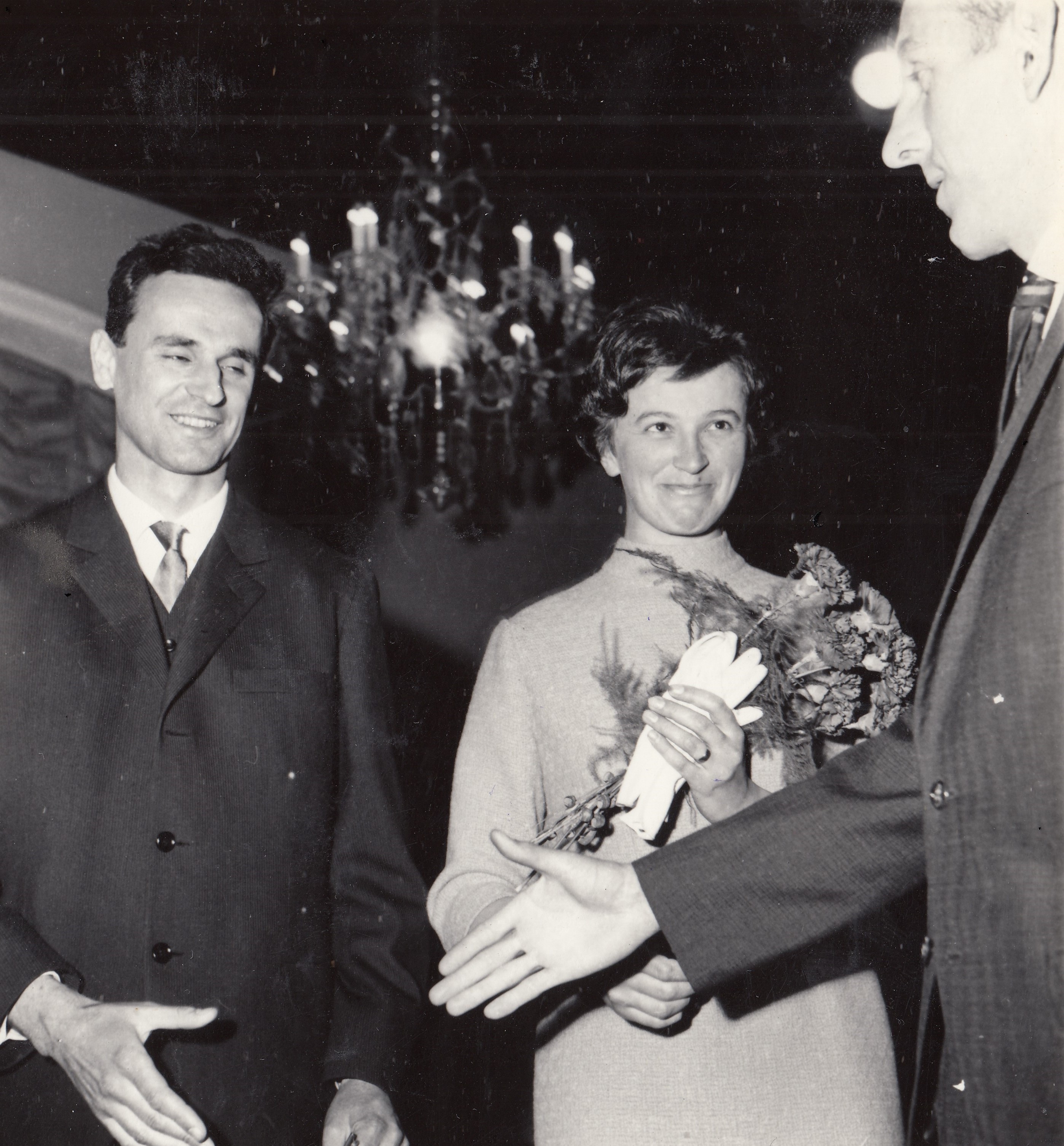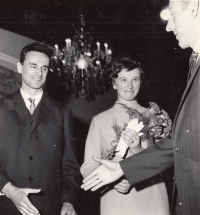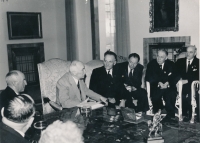We all collaborated with the regime by making various concessions

Download image
Hana Havlíčková, nee. Kostřicová, was born on April 10, 1937 in Nové Město na Moravě, as the second child of her parents Libuše, nee. Švandová, and JUDr. Jan Kostřica. They lived in Nové Město na Moravě, where her father practiced law. His mother Libuše Kostřicová was a teacher. In Nové Město they experienced local war events and liberation, and their father became the chairman of the revolutionary national committee. After the war, following President Beneš’s call to settle the borderlands, they moved to Šumperk, where her father originally came from and where Hana and her sister grew up. Libuše Kostřicová stood at the reestablishment of the Šumperk Sokol, led the training of the pupils, and Hana became a member of the Sokol. She took part in the 1948 meeting in Prague. Her father, a member of the KČT, participated with his family in the reestablishment of hiking signs in the Jeseníky Mountains after the war. After the war, he was one of the first in the country to organize orienteering races. After 1948, his father’s trade was nationalized, his mother was not allowed to teach, and she was forbidden to work in the Sokol. Later she returned to the teaching profession. Hana Havlíčková graduated from the Higher School of Economics in Šumperk in 1956 and spent most of her life working in the Šumperk Savings Bank as head of the economic department. She devoted herself to orienteering, later also as a coach and became secretary of TJ Lokomotiva Šumperk. In 1964 she married Ing. Jiří Havlíček, they raised two sons Jan (1965) and Tomáš (1968). After marriage, her husband worked at the Research Institute for Powder Metallurgy in Šumperk. In 2024 Hana Havlíčková was widowed. At the time of filming in 2024 she lived in Šumperk.

